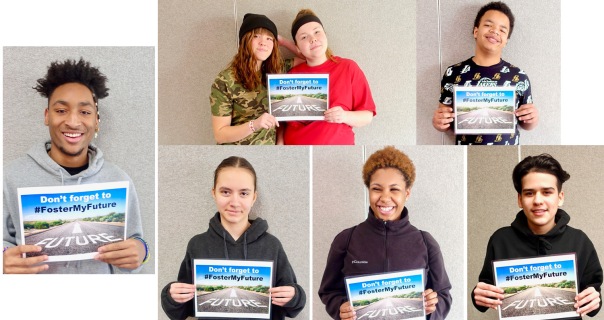
Ohio foster care youth and alumni believe that:
- Independent Living Departments should be supported and maintained in every county
- Foster parents and caseworkers that serve teens should be provided training on resources to assist youth in their transition to young adulthood
- These trainings should be designed by former foster youth, with insights from today’s foster youth included in curriculum design
Ohio foster care youth and alumni messages and testimonials:
- Letter to Representative Manchester regarding Make Every Training Hour Count proposal
- Raven Grice’s written testimony shares the negative impact of dissolving county Independent Living Departments on foster care teens and young adults.
- Merri Haren’s written testimony supports Raven’s recommendations, and includes how life skill preparation helped prepare her for success in young adulthood.
- Jaye Turner’s written testimony defines foster care as more than a placement, but a launching ground to help teens build a successful future.
- Jaye Turner’s video testimony outlines the need for mandatory independent living training tracks for caseworkers and foster parents who serve teens, to be designed and led by those with lived experience in foster care.
Every Ohio public and private foster care agency has a responsibility to provide independent living preparation for teens in foster care. This is required by state and federal law. Whether foster care youth are adopted, reunified, entrusted to kin or “age out” of foster care, we all need life skills to help us succeed in the future.
This is why Ohio foster care youth and alumni have proposed the creation of mandatory training tracks for foster parents and caseworkers who serve teens regarding available resources to support foster youth transitioning into young adulthood.
We would like for foster parents and caseworkers who serve teens to be required to take specific trainings to meet the needs of young people in their care, for the purpose of informing, supporting and empowering them to access resources that exist for the very purpose of help them transition successfully to young adulthood.
There is no current training mechanism to ensure that foster parents or caseworkers who serve teens are informed about specific resources that exist on a local, statewide and federal level, to help former foster youth succeed in their journey to adulthood. Given the current system, it is possible, and even common, for a caseworker or foster parent to serve in their role for years without this knowledge.
Often the decision about which training courses to attend depends on (a.) whether or not the caseworker/foster parent needs training hours and (b.) what options are available on the training calendar that meet their schedule. There is no guarantee within a given month that their local Regional Training Center has chosen to invite a trainer to teach on this topic.
This leads to inconsistency in practice, and a lack of knowledge that can negatively impact short- and long-term outcomes for youth, including homelessness. One of the tenets of OCWTP training is transfer of learning, and it isn’t enough just to “get enough hours” if the trainings attended are not specifically targeted to translate into practice/action.
This training track will inform, empower and support caseworkers and foster parents who serve teens to pair them with specific resources to support their transition into adulthood.
There are specific categories of resources that every Ohio foster care teen deserves to be informed about and connected with, such as:
- Academic Support: ACT waivers, SAT waivers, Every Student Succeeds Act
- Post-Secondary: ETV, FAFSA, Ohio College Opportunity Grant, college fee waivers, and existing Reach programs throughout the state
- Career/Vocational: CCMEP, Ohio Means Jobs, Job Corps
- Health: Social Security for emancipating youth with disabilities, Medicaid until age 26 Housing: FYI vouchers (and hopefully FSHO in the future)
- Legal: Capital Law School’s free legal clinic for former foster youth
Proposal for moving forward:
- Standardized curriculum designed by foster care alumni
- Scheduling a Training of Trainers for a team of foster care alumni trainers
- Training rolled out statewide
- Including a post-training Coaching component
- If part of this training is online, seek to have a live training where people sign in, and a post-test to ensure transfer of learning.
*We understand that a Foster Care Advisory Council was previously convened in 2017 to discuss this and similar issues – but no foster care youth or alumni were included on that committee.